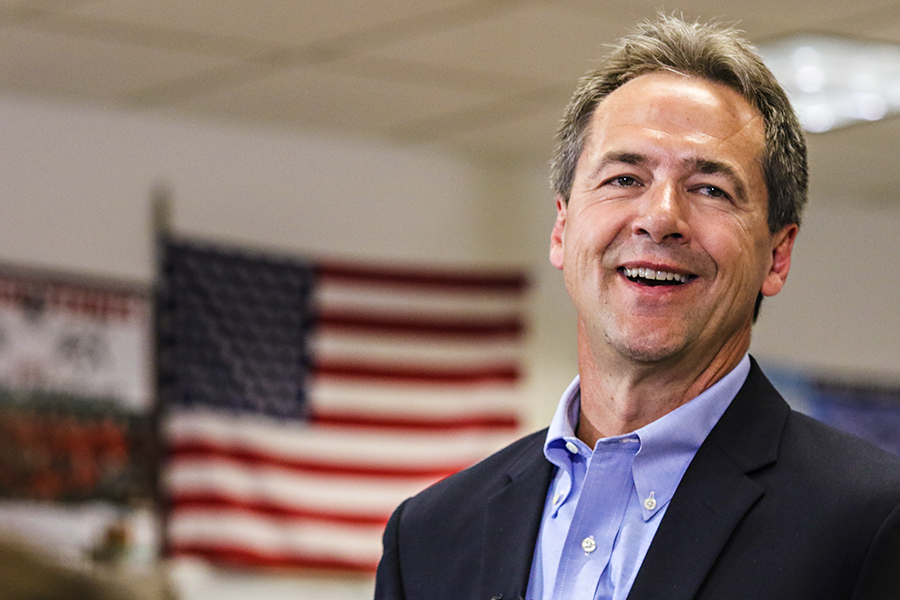Gov. Steve Bullock on Tuesday issued an executive order further limiting the capacity in bars, restaurants, breweries, distilleries and casinos, while restricting public gatherings to 25 people or fewer when social distancing is not possible.
The new directive comes amid a surge of COVID-19 cases sweeping the nation and Montana, which reported 1,500 new cases Tuesday morning. The governor’s order also extends a mandate requiring face coverings in public settings to include all counties regardless of case numbers. As of Nov. 17, only two of Montana’s 56 counties were exempt from the existing face covering directive. Montana joins six other states in strengthening or adopting face covering directives in an effort to slow the spread of the novel coronavirus.
Montana’s directive goes into effect on Friday, Nov. 20 at 5 a.m. and requires bars, restaurants, breweries, distilleries and casinos to operate at a maximum of 50 percent capacity, which is more stringent than the 75% capacity allowed under the previous guidelines. The order also limits table seating to six patrons and directs those businesses to close by 10 p.m., in addition to maintaining social distancing.
“Now these are are decisions I don’t take lightly,” Bullock said on a press call Tuesday afternoon. “Yet they are a necessity. We’re all sick of this virus, we all have to collectively recognize this virus won’t stop spreading through our communities anytime soon unless we take active steps to stop its spread.”
The restriction on gatherings applies to any public setting where social distancing is not possible, but does not apply to places of worship, which remain subject to the 50-person limit previously established, nor does it alter the current requirements for schools.
Bullock opened the press call by emphasizing the strain that Montana’s surging caseload places on local health care systems, which are approaching a tipping point in some corners of the state. He related an anecdote from Kalispell Regional Medical Center, where he said 70 COVID-19 positive staff members are currently unable to work.
“Our health care workers are exhausted and hospital resources are becoming exhausted,” Bullock said. “In some places we are already out of beds and running out of room to put new beds.”
To help individuals and businesses that may experience economic hardships due to the new restrictions, Bullock announced that the state will offer another $75 million round of Business Stabilization Grants to existing businesses that have already been vetted and received assistance. In addition, the state is launching a $25 million Interim Pandemic Assistance Program to to provide enhanced unemployment payments to Montanans who are unemployed or partially unemployed due to COVID disruptions. The enhanced benefit will include four weeks of $200 payments in addition to the current unemployment payments beginning the week ending Nov. 28.
The state will also provide an additional $3 million to expand the funding allocations for food bank and food pantry assistance grants to help families concerned about putting food on the table during the holidays.
“Let me make this clear, providing this minimal relief for Montana families and businesses does not let Congress off the hook,” Bullock said. “We know the needs of Montana businesses and families are greater than what we can give them with these remaining state coronavirus relief funds, and the needs will be even greater next year.”
Bullock applauded local governments in COVID-19 hot spots that have stepped up to increase restrictions on their own, even as some residents continue to push back on the mandates. He said that enforcement of the directive would be up to local governments, but that businesses that want another round of stabilization grants will be required to check off that they are following both state and local recommendations.
“At the end of the day, from my perspective at least, it’s less about enforcement and more about us all doing the right thing,” Bullock said. “And we know the steps that need to be taken.”
